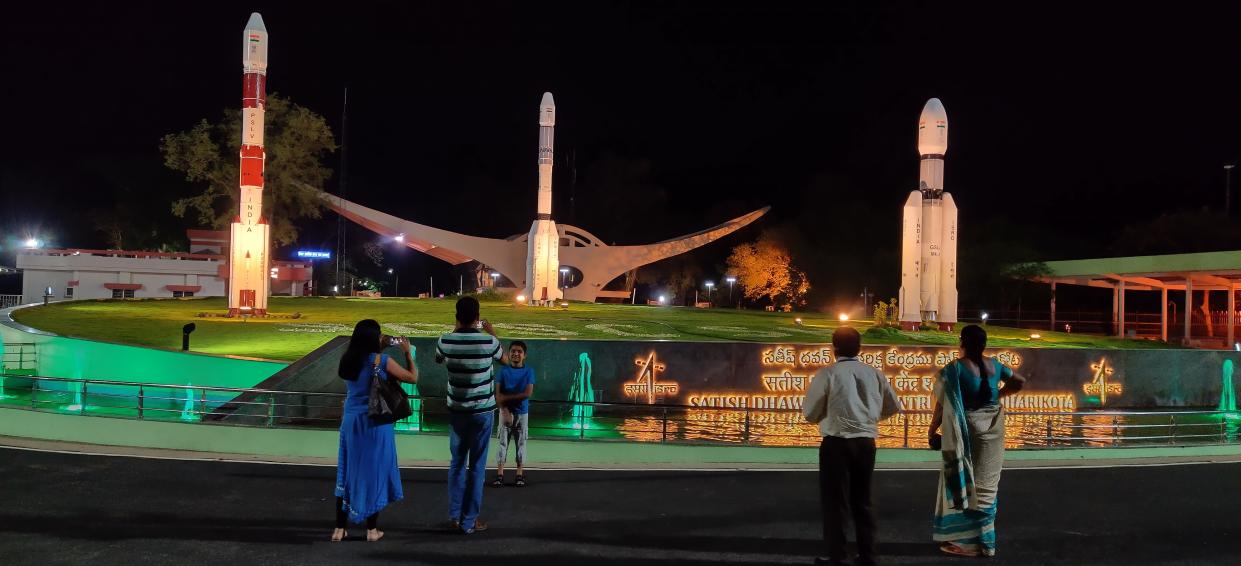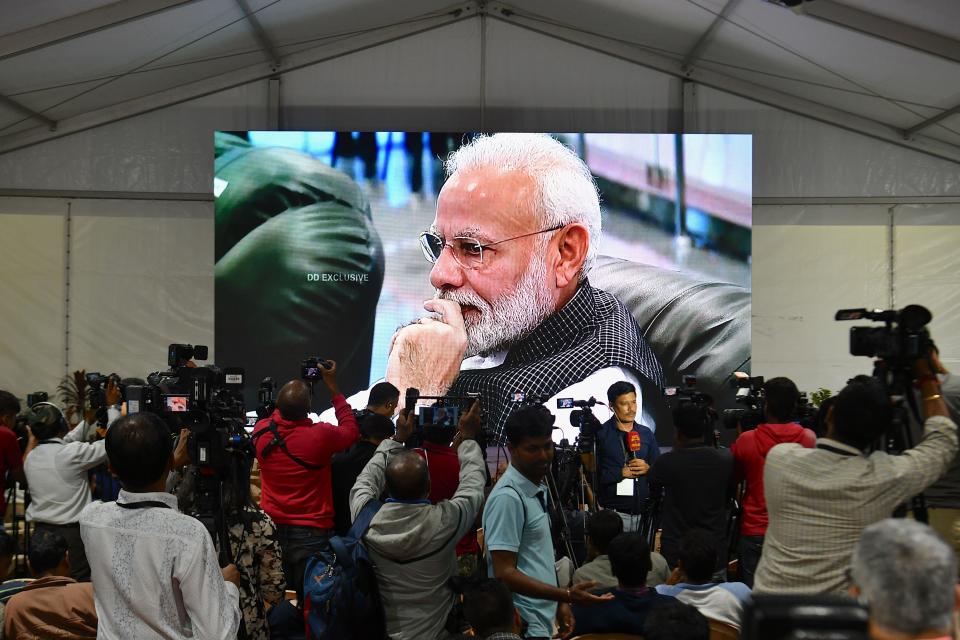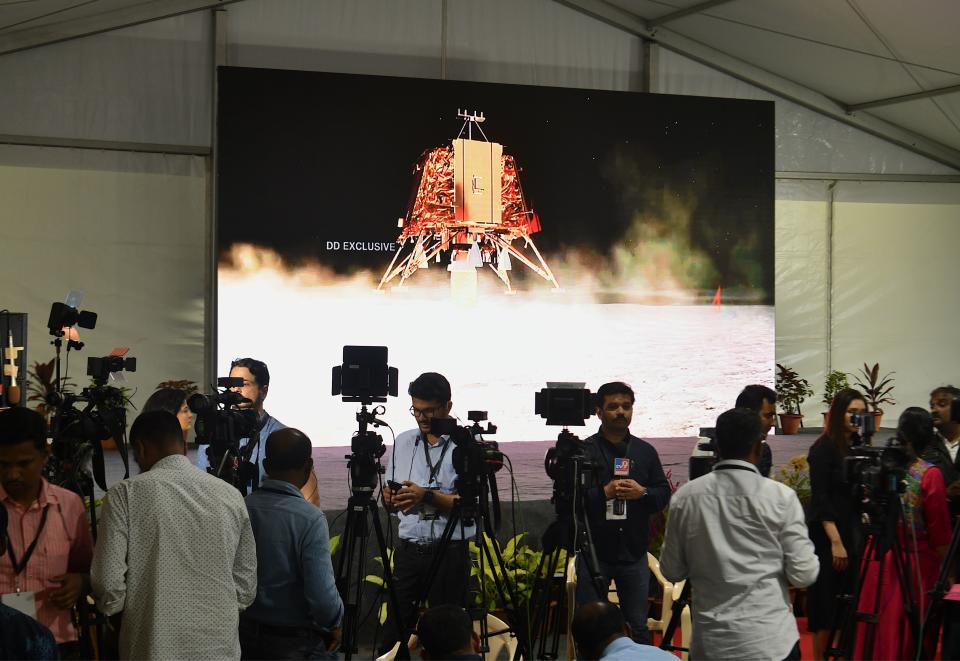India fails to land first-ever spacecraft on the moon

India has failed to land its first-ever spacecraft on the moon after losing contact at the last moment.
The Vikram lander went silent just 2.1 kilometres (1.3 miles) above the lunar surface.
India had hoped to become the fourth country after the United States, Russia and China to make a successful moon landing, and the first on the lunar South Pole.
Prime Minister Narendra Modi was seen comforting upset scientists and a stunned nation in the early hours of Saturday after the news was announced.
Modi said: “Sisters and brothers of India, resilience and tenacity are central to India's ethos. In our glorious history of thousands of years, we have faced moments that may have slowed us, but they have never crushed our spirit.
He added: "We have bounced back again.
"When it comes to our space programme, the best is yet to come."

Chandrayaan-2 took off on July 22 carrying an orbiter, lander and rover almost entirely designed and made in India -- the mission cost a relatively modest $140 million -- a week after an initial launch was halted just before blast-off.
READ MORE YAHOO NEWS
Explained: ISRO’s Vikram Lander is lost, but this hardly matters. Here’s why
Timeline: How Chandrayaan-2 Mission Unfolded Before the Setback
ISRO Deserves Our Support — It’s Not Easy, It’s Rocket Science
Indian Space Research Organisation (ISRO) had acknowledged before the soft landing that it was a complex manoeuvre, which ISRO chairman Kailasavadivoo Sivan called "15 minutes of terror".

Sivan said: "The Vikram lander descent was (going) as planned and normal performance was observed.
"Subsequently the communication from the lander to the ground station was lost," he said after initial applause turned to bewilderment at the operations room. "The data is being analysed."
There was some good news after it was revealed the Chandrayaan-2 ("Moon Vehicle 2") orbiter, which will circle and study the Moon remotely for a year, was "healthy, intact, functioning normally and safely in the lunar orbit".

